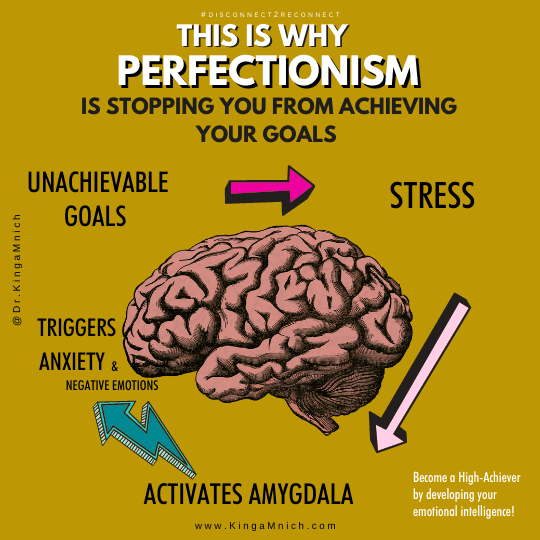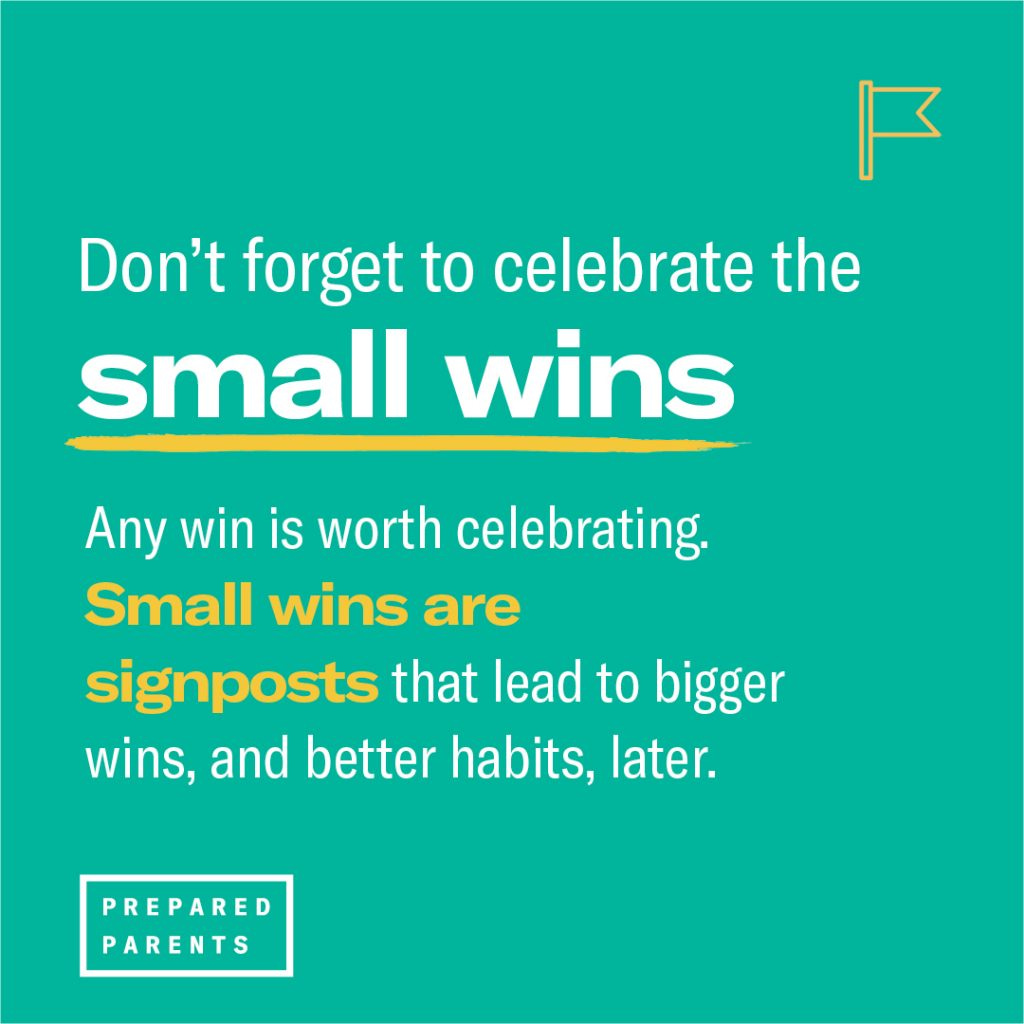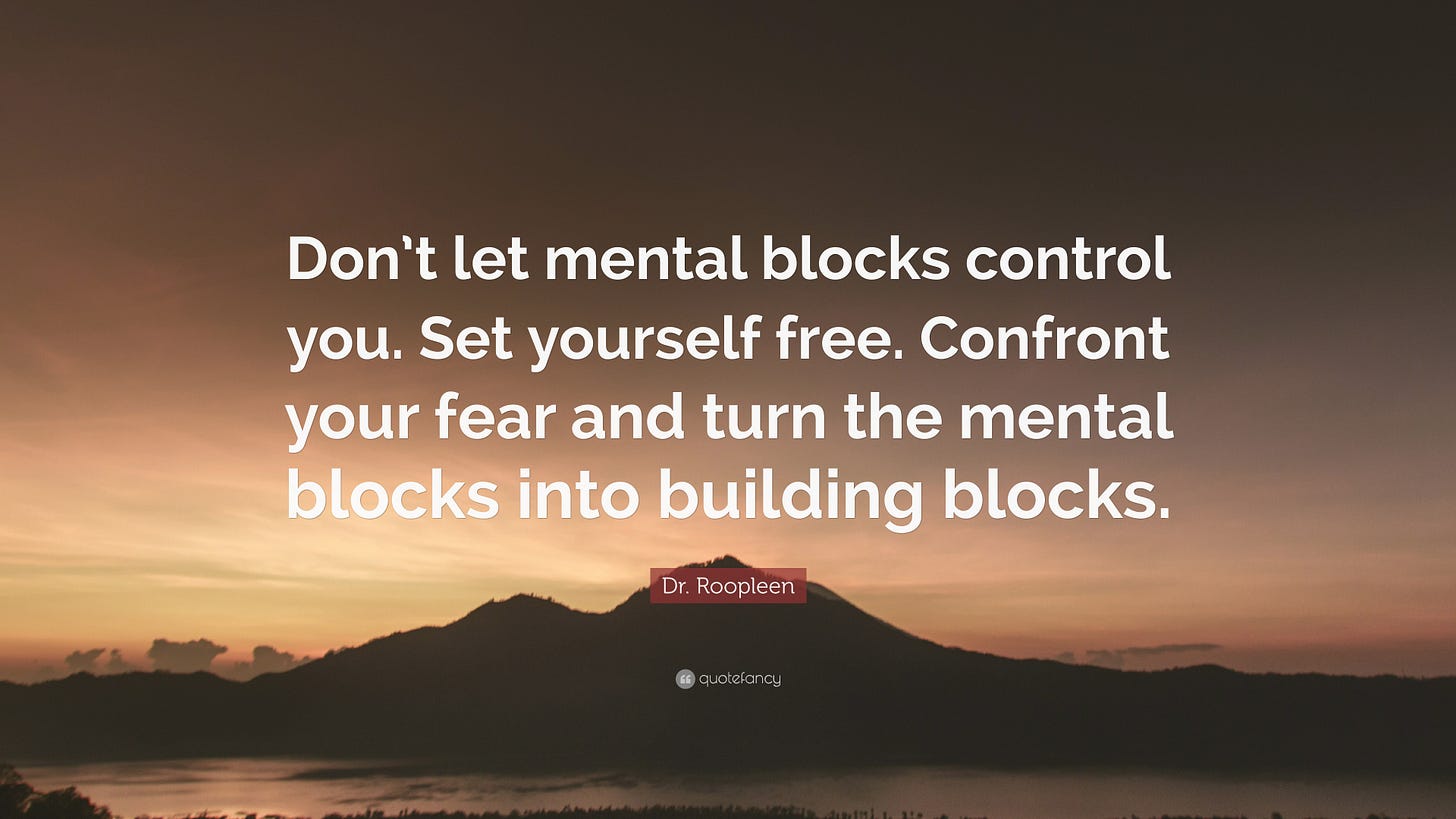The Art of Getting Unstuck: Understanding & Beating Mental Blocks
By Mind & Muscle Academy. Newsletter no10 ; 1st of Overcoming Mental Blocks Series. 15/11/2024
Imagine standing there, ready to give it your all. You’ve practised, prepared, and psyched yourself up – but suddenly, your mind goes blank. Every bit of confidence feels like it’s slipped through your fingers.
Whether it's in sports, studies, or personal goals, that wall of mental resistance feels all too familiar. But here’s the truth: mental blocks are just that – blocks. They can be worked around, moved, or even shattered.
What’s Inside This Week’s Article?
What: What Exactly is a Mental Block?
Why: Why Do Mental Blocks Happen?
How: How Mental Blocks Show Up in Real Life
Moving Forward: Turning Awareness into Action
Introduction
We’ve all felt it, haven’t we? The pressure mounts - you’ve prepared for weeks, committed every step, every strategy, every detail to memory. But when it’s time to shine, your mind suddenly slams shut, locking away everything you thought you knew.
For me, it was last Sunday at a karate competition. I had poured myself into this moment: drilling each punch, each stance, each shift in weight until it felt like second nature. I walked onto the tatami brimming with anticipation, ready to show my best.
And then - halfway through - my mind went blank.
A heavy silence fell over me, one that drowned out everything I’d rehearsed. I stood there, motionless, while dozens of eyes zeroed in, each second stretching painfully as I scrambled to remember what came next. My hours of practice, the late nights, the repetitions - it was all gone, vanished in the face of sheer pressure.
Moments like these don’t just unsettle you; they can shake you to your core, rattling your confidence and leaving you wondering if you can trust yourself again.
1. What Exactly is a Mental Block?
Mental blocks are those invisible barriers that suddenly make simple tasks feel impossible. They’re that sensation of being mentally “stuck” or “frozen,” often in areas where you’d usually perform well. While they can be frustrating and even a bit humiliating, they’re more common than we think - and they affect people in nearly every aspect of life.
Think of it like this: mental blocks are a natural, if annoying, response to moments of stress, high stakes, or the fear of failure. They’re your mind’s way of saying, “Hold on, this feels risky.” It’s like an internal brake that stops us in our tracks.
2. Why Do Mental Blocks Happen?
Here’s where things get a bit more interesting. Mental blocks aren’t random - they’re frequently the result of deeply rooted psychological responses. Here are some of the most common causes:
Fear of Failure: Mental blocks are regularly a defence mechanism against the possibility of failure. The brain goes into “protection mode,” trying to avoid the risk of failure by creating barriers to action.
Overwhelm: When the to-do list is endless, it’s easy to get paralysed by sheer overwhelm. You can feel too swamped even to take the first step, making the task seem ten times bigger than it is.
Self-Doubt: Self-doubt can become a self-fulfilling prophecy. If you’re not convinced you can do something, your brain might cooperate by throwing up a mental roadblock.
Perfectionism: Ironically, the quest for perfection typically leads to paralysis. When nothing less than perfect is acceptable, starting anything at all can feel daunting.
These mental barriers affect performance, confidence, and motivation. But they’re not as unbeatable as they seem. Recognising the causes can be the first step to overcoming them.
3. How Mental Blocks Show Up in Real Life
Mental blocks come in many forms. In academics, it might look like staring at a blank page, unable to begin writing a paper, even though you have all the research in front of you. In sports, it might feel like hitting a plateau - your performance stops improving no matter how hard you try.
And it’s not just limited to big projects. A mental block can make even simple tasks, like writing an email or studying for an upcoming test, seem monumental. But understanding that these blocks are a universal experience can help relieve some pressure.
4. A Path Forward: Turning Awareness into Action
Once you can spot a mental block for what it is, you’re already halfway to overcoming it. Here are a few strategies to help you get unstuck when a mental block hits:
Start with Small Wins: Sometimes, breaking down the task into tiny, manageable steps can help you build momentum. For example, if studying feels overwhelming, just commit to reading one page or reviewing one section. Small wins create a chain reaction, and before you know it, you’re back in the flow.
Shift Your Focus: Often, taking a step back can help reset your mind. Going for a walk, meditating, or doing a few minutes of a different activity can help reframe your focus, giving your mind a “reboot.”
If you find yourself in a difficult situation like mine, where you can’t just take a break, close your eyes for a second, take a deep breath and calm yourself down.
Reframe Fear of Failure: Fear is often at the root of mental blocks, so learning to view failure as a stepping stone, not a dead end, can help. Think of each attempt as an experiment, a chance to learn something new - even if it doesn’t go perfectly.
Visualise Success: Imagining yourself completing the task successfully can help reduce anxiety. This technique can help “prime” your brain for action, making the challenge feel more attainable.
Conclusion: Moving Forward Without Perfection
The biggest takeaway? Mental blocks are just that - blocks, not walls. They’re temporary, and with the right mindset, you can work through them. So next time you find yourself staring at a task, feeling like it’s impossible, remember: even the best athletes, students, and professionals hit mental blocks. It’s what you do after you hit the block that defines success.
This week, I want you to try this: tackle a task you’ve been putting off. Take a small step. Focus on progress, not perfection. Remind yourself that the only way through a block is to keep moving forward, one step at a time.
Stay tuned for more tips, stories, and advice in our upcoming newsletters, and feel free to check out last week’s edition!
As always, I’m open to new ideas or suggestions you may have, so feel free to leave a comment!
Thank you all for joining me today, and I wish you a pleasant rest of your day.
Quote of the Day:
Best regards,
Ruben
Founder, Mind & Muscle Academy











Yea, blanks really do happen with the worst timing. Thanks for the tips!